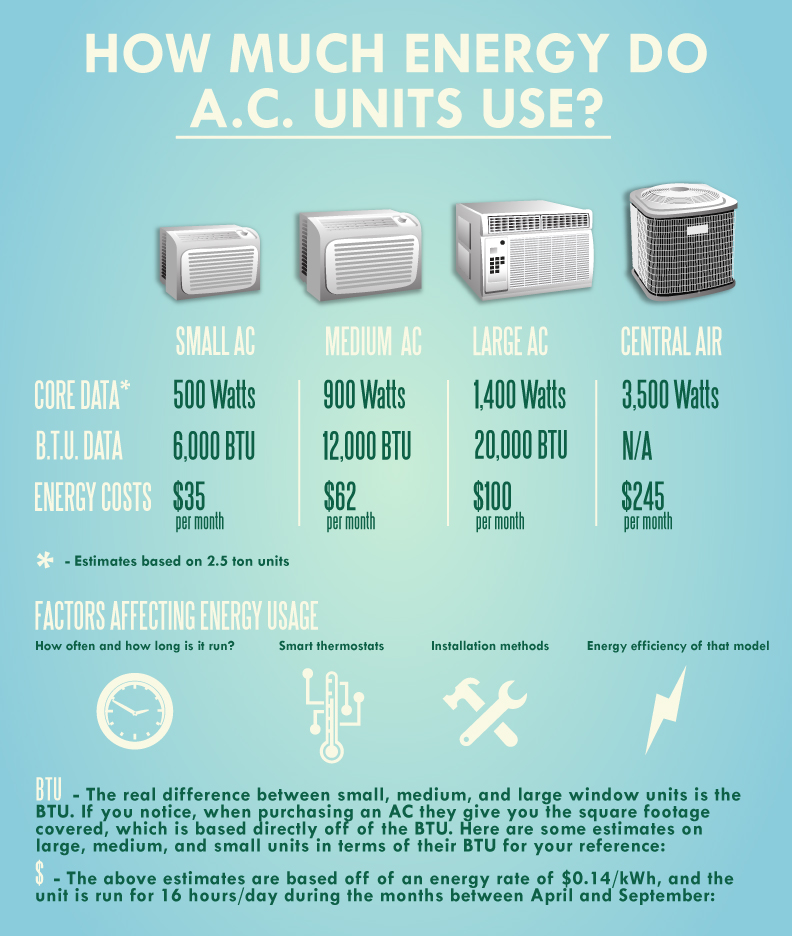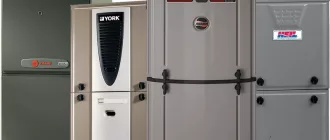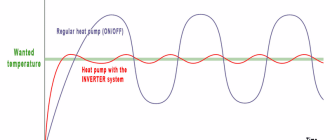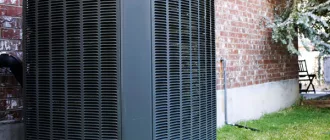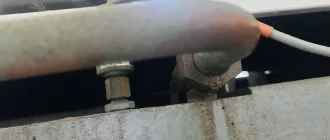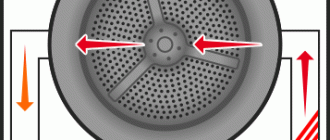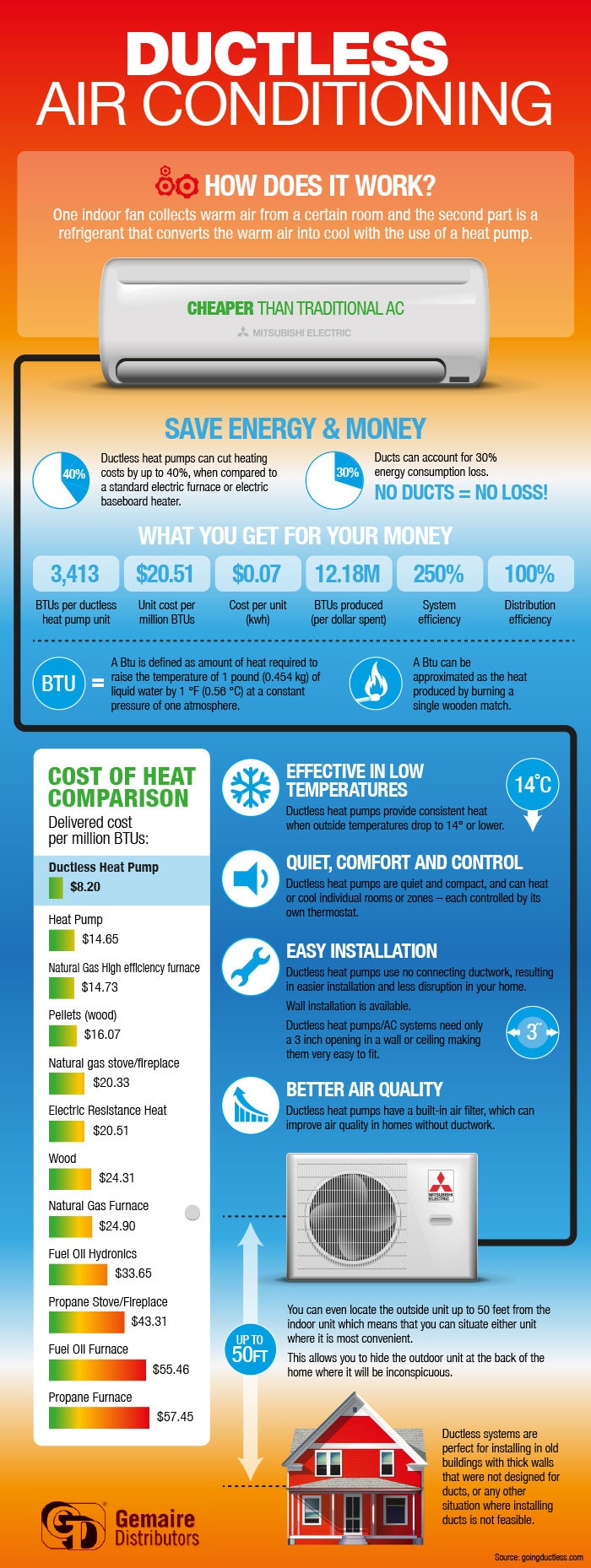
Exploring the Financial Considerations of Purchasing a New Air Conditioner: A Closer Look at the Costs Involved
When the summer heat becomes unbearable, investing in a new air conditioner can provide much-needed relief. However, the decision to purchase a new cooling system should not be taken lightly. Understanding the cost of a new air conditioner is crucial in order to make an informed choice.
The cost of a new air conditioner can vary widely depending on several factors. The size and type of the unit, as well as the energy efficiency rating, all play a role in determining the price. It is important to consider the specific needs of your space and budget when selecting a new cooling system.
One of the key factors to consider is the installation cost. Professional installation is highly recommended to ensure proper functioning and efficiency of the unit. The installation cost may include expenses such as equipment and labor, so it is important to factor this into the overall cost of the new air conditioner.
Additionally, the long-term costs of operating and maintaining the air conditioner should be taken into account. Energy-efficient models may have a higher upfront cost, but they can save you money in the long run by reducing energy consumption. Regular maintenance and servicing are also essential to keep the air conditioner running smoothly and to prolong its lifespan.
Why Invest in a New Air Conditioner?
Cooling is an essential factor in maintaining a comfortable and pleasant living or working environment. An air conditioner plays a crucial role in providing effective cooling, especially during hot summer months.
While the upfront cost of a new air conditioner may seem high, investing in one can bring numerous benefits in the long run. Here are some reasons why investing in a new air conditioner is a smart choice:
- Improved cooling performance: A new air conditioner will provide better cooling performance compared to an old or malfunctioning unit. It will be able to cool your space more quickly and maintain a consistently comfortable temperature.
- Energy efficiency: Newer air conditioners are designed to be more energy-efficient, which means they consume less electricity while providing the same level of cooling. This can lead to significant cost savings on your monthly utility bills.
- Enhanced indoor air quality: Modern air conditioners are equipped with advanced filters that can remove dust, pollen, and other air pollutants, improving the indoor air quality in your space. This is especially beneficial for individuals with allergies or respiratory conditions.
- Reduced maintenance and repair costs: Old air conditioners often require frequent repairs and maintenance, which can be costly. By investing in a new air conditioner, you can reduce the need for repairs and save money on maintenance expenses.
- Increased property value: Installing a new air conditioner can enhance the value of your property. Potential buyers or renters will be attracted to a home or office with a modern and efficient cooling system in place.
Overall, investing in a new air conditioner is an investment in your comfort, energy savings, and the overall well-being of your space. It is a wise decision that can provide a range of benefits while ensuring a cool and comfortable environment all year round.
The Importance of a Quality Cooling System
Investing in a new air conditioner is a crucial decision for any homeowner. With rising temperatures and the need for relief from the sweltering heat, a reliable cooling system is essential.
When considering a new air conditioner, it’s important to prioritize quality. A high-quality cooling system can provide numerous benefits, including:
- Improved air quality: A new air conditioner can effectively filter out pollutants, dust, and allergens, ensuring cleaner and healthier air for you and your family.
- Enhanced comfort: A quality cooling system can create a more consistent and comfortable indoor environment, allowing you to escape the heat and enjoy a cool and relaxing atmosphere in your home.
- Energy efficiency: Investing in a new air conditioner with energy-efficient features can significantly reduce your cooling costs. These systems are designed to consume less energy while delivering optimal cooling performance.
- Long-term savings: Although the cost of a new air conditioner may seem daunting initially, the long-term savings can be substantial. By choosing a quality cooling system, you can enjoy lower energy bills and potentially avoid costly repairs in the future.
- Durability and reliability: Quality cooling systems are built to last. They are designed with durable components and undergo rigorous testing to ensure reliable performance. This means fewer breakdowns and repairs, giving you peace of mind.
When contemplating the cost of a new air conditioner, it’s important to remember the value that a quality cooling system brings. By investing in a reliable and efficient cooling system, you can experience improved air quality, enhanced comfort, energy savings, and long-term durability. Don’t compromise on the quality of your cooling system – invest wisely for a cool and comfortable home.
Benefits of Upgrading Your Air Conditioner
When it comes to cooling your home or workspace, understanding the benefits of investing in a new air conditioner is crucial. While the cost of a new unit may seem daunting initially, there are several advantages to upgrading your current system.
1. Improved Cooling Efficiency: A new air conditioner is likely to be much more energy-efficient than an older model. This means that it will cool your space faster and more effectively, while using less energy. As a result, you can enjoy a comfortable environment without worrying about high utility bills.
2. Enhanced Air Quality: Upgrading your air conditioner can also lead to improved indoor air quality. Newer units come with advanced filtration systems that can effectively remove dust, pollen, and other pollutants from the air, helping to create a healthier living or working environment. This is particularly beneficial for individuals with respiratory ailments or allergies.
3. Reduced Maintenance Costs: Older air conditioners often require frequent repairs and maintenance to keep them running smoothly. By upgrading to a new unit, you can avoid the hassle and cost of regular maintenance and potential breakdowns. Newer models are generally more reliable, reducing the need for repair services.
4. Increased Property Value: Installing a new air conditioner can also increase the value of your property. Potential buyers will view a new unit as an attractive feature, as it indicates that the cooling system is up to date and in good working condition. This can be a selling point if you ever decide to sell your home or commercial space.
In conclusion, investing in a new air conditioner can provide numerous benefits, including improved cooling efficiency, enhanced air quality, reduced maintenance costs, and increased property value. Consider upgrading your air conditioner to enjoy these advantages and create a more comfortable and healthy indoor environment.
Energy Efficient Options
When considering a new air conditioner, it’s important to understand the cost of cooling and the energy efficiency of different options. Energy efficient air conditioners can help save money on utility bills while also being better for the environment.
One option to consider is a high-efficiency air conditioner. These units are designed to consume less energy while still providing the cooling power needed. They often come with an ENERGY STAR certification, which indicates that they meet or exceed strict energy efficiency guidelines set by the US Environmental Protection Agency.
Another energy efficient option is a variable-speed air conditioner. Unlike traditional air conditioners that have only one speed, variable-speed units can adjust their output based on the cooling needs of the space. This allows them to run at lower speeds when the demand is not as high, resulting in less energy consumption.
Heat pumps are also a popular energy efficient choice. These units can provide both heating and cooling, making them a versatile option. Heat pumps operate by transferring heat from one area to another instead of generating heat, which makes them more energy efficient than traditional heating systems.
In addition to the type of air conditioner, it’s important to consider other features that can improve energy efficiency. For example, a programmable thermostat allows you to set different temperatures for different times of the day, reducing the amount of energy used when cooling is not needed.
Before making a decision, it’s important to research and compare different energy efficient options. Look for models with high SEER (Seasonal Energy Efficiency Ratio) ratings, as a higher SEER rating indicates greater energy efficiency. It’s also a good idea to consult with a professional to determine the best option for your specific cooling needs and budget.
Investing in an energy efficient air conditioner can lead to long-term savings on energy costs while also reducing your environmental impact. With the understanding of the cost of cooling and the benefits of energy efficiency, you can make a more informed decision when purchasing a new air conditioner.
Extended Lifespan
Investing in a new air conditioner can seem like a significant cost upfront, but it can actually save you money in the long run. One of the main benefits of purchasing a new air conditioner is the extended lifespan that it provides.
A new air conditioner is designed to last for many years, ensuring that you have reliable cooling for a long time. Older air conditioners may start to experience issues and breakdowns as they age, resulting in costly repairs and replacements. By investing in a new air conditioner, you can avoid these additional costs and enjoy a system that is more efficient and effective at cooling your space.
The extended lifespan of a new air conditioner also helps to maximize your investment. While the upfront cost may seem high, the longer lifespan means that you will be able to enjoy the benefits of your new cooling system for a longer period of time. This can ultimately save you money as you won’t need to replace your air conditioner as frequently.
Additionally, newer air conditioners often come with improved energy efficiency features. This can result in lower energy bills as your new air conditioner will be able to cool your space more efficiently. Over time, these energy savings can add up, further maximizing the value of your investment.
In conclusion, investing in a new air conditioner can be costly upfront, but the extended lifespan that it provides can make it a worthwhile investment. Not only will you have reliable cooling for many years, but you can also save money by avoiding costly repairs and replacements. Additionally, the improved energy efficiency of newer air conditioners can help lower your energy bills, further maximizing your investment.
Environmentally Friendly Solutions
When investing in a new air conditioner, it’s important to consider not just the cost and cooling capabilities, but also the environmental impact. Traditional cooling systems can have a significant negative impact on the environment, contributing to greenhouse gas emissions and energy waste. However, there are environmentally friendly solutions available that can help reduce these negative effects.
One option is to choose an air conditioner that is energy-efficient. This means selecting a unit that has a high energy efficiency ratio (EER) or seasonal energy efficiency ratio (SEER). These ratings indicate how much cooling output the unit provides per unit of energy consumed. Units with higher EER or SEER ratings will be more efficient and use less energy, reducing both your carbon footprint and your energy bills.
Another environmentally friendly solution is to consider alternative cooling technologies, such as evaporative coolers or geothermal systems. Evaporative coolers use water evaporation to cool the air, making them more energy-efficient than traditional air conditioners. Geothermal systems utilize the stable temperatures of the earth to provide heating and cooling, resulting in lower energy consumption and reduced emissions.
It’s also important to properly maintain and service your air conditioner to ensure optimal efficiency and minimize its environmental impact. Regular cleaning, changing filters, and scheduling professional inspections can help keep your unit running smoothly and reduce the need for repairs or replacements.
By understanding the environmental impact and considering these environmentally friendly solutions, you can make a more informed decision when investing in a new air conditioner. Not only will you enjoy the benefits of a cool and comfortable home, but you’ll also contribute to a more sustainable and eco-friendly future.
Lower Energy Bills
When it comes to investing in a new air conditioner, understanding the cost is important. However, in addition to the upfront expenses, it’s also essential to consider the long-term savings potential. One significant benefit of a new air conditioner is the potential for lower energy bills.
Older air conditioning systems tend to be less energy efficient, meaning they require more electricity to cool your home. This can result in higher energy bills, especially during the peak summer months when the air conditioner is constantly running. By upgrading to a new, more energy-efficient system, you can significantly reduce your monthly energy costs.
A new air conditioner uses advanced technology and improved design to maximize energy efficiency. These systems are designed to provide the same level of cooling while using less electricity. This can translate into substantial savings over time.
In addition to a more energy-efficient system, there are other steps you can take to lower your energy bills. Simple practices, such as properly sealing your home to prevent air leaks and regularly cleaning or replacing air filters, can improve the performance of your air conditioner and help reduce energy waste.
To further optimize energy efficiency, consider installing a programmable thermostat. This allows you to set temperature schedules based on your daily routine, so the air conditioner is only running when it’s needed. By avoiding unnecessary cooling and taking advantage of energy-saving settings, you can further lower your energy bills.
Investing in a new air conditioner not only provides optimal comfort but can also lead to significant savings on your energy bills. By understanding the potential cost savings and implementing energy-saving practices, you can make a wise investment in your home’s cooling system.
Factors to Consider When Buying a New Air Conditioner
Investing in a new air conditioner is an important decision that requires careful consideration. Here are some factors to keep in mind:
- Cooling Capacity: Ensure that the air conditioner you choose is capable of effectively cooling the space you intend to use it in. Consider the size of the area and the BTU (British Thermal Units) rating of the unit.
- Energy Efficiency: Look for an air conditioner with a high energy efficiency ratio (EER). This will help you save on energy costs in the long run. Consider models with an Energy Star rating.
- Installation Requirements: Make sure to check the installation requirements of the air conditioner. Consider factors such as wall mounting options, window size compatibility, and the need for professional installation.
- Cost: Set a budget for your new air conditioner and compare prices across different brands and models. Consider the upfront cost as well as long-term maintenance and repair costs.
- Noise Level: Consider the noise level of the air conditioner, especially if you plan to place it in a bedroom or a living room. Look for models that have a quiet operation feature.
- Additional Features: Consider the additional features that come with the air conditioner. Some models offer features such as programmable timers, remote control operation, and air purifying filters. Decide which features are important to you.
- Warranty and Support: Look for a reputable brand that offers a warranty and reliable customer support. This will help ensure that you are covered in case of any issues with your new air conditioner.
By considering these factors, you can make an informed decision and invest in a new air conditioner that meets your cooling needs and budget.
Size and Capacity
When investing in a new air conditioner, understanding the size and capacity of the unit is crucial for determining the cost. The size of an air conditioner refers to its cooling capacity, measured in British Thermal Units (BTUs). The cooling capacity needed for a space depends on factors such as the size of the room, the number of people occupying it, and the amount of sunlight it receives.
Choosing the right size air conditioner is important because an undersized unit will struggle to cool the space efficiently, while an oversized unit may cycle on and off frequently, resulting in energy waste. To determine the correct size for your cooling needs, it is recommended to consult with an HVAC professional who can assess your specific requirements and recommend the appropriate BTU rating.
Additionally, the cost of a new air conditioner typically increases with higher capacity units. While smaller units may be less expensive initially, they may also struggle to adequately cool larger spaces, leading to higher energy bills in the long run. On the other hand, larger units have a higher upfront cost but can efficiently cool larger areas, potentially saving money on energy expenses.
When considering the cost and capacity of a new air conditioner, it is important to strike a balance between meeting your cooling needs and staying within your budget. Consulting with professionals and conducting thorough research can help you make an informed decision and ensure that your investment in cooling is worthwhile.
| 5,000 | 100-150 |
| 6,000 | 150-250 |
| 7,000 | 250-300 |
| 8,000 | 300-350 |
| 10,000 | 400-450 |
Installation and Maintenance Costs
When investing in a new air conditioning system, understanding the installation and maintenance costs is crucial. Installing an air conditioner requires professional expertise and can be a significant expense. The installation cost will depend on various factors such as the type and size of the unit, the complexity of the installation process, and the location of the property.
The installation process usually involves assessing the space where the air conditioner will be installed, determining the necessary equipment and materials, and completing the installation itself. This typically includes mounting the air conditioner, connecting it to the electrical system, and ensuring proper ventilation and drainage.
Maintenance costs should also be considered when budgeting for a new air conditioner. Regular maintenance is essential to ensure the unit functions efficiently and extends its lifespan. Depending on the manufacturer’s recommendations, maintenance tasks may include cleaning or replacing filters, inspecting and cleaning the coils, lubricating moving parts, and checking refrigerant levels.
It’s important to note that neglecting regular maintenance can lead to decreased efficiency, increased energy consumption, and potential breakdowns. Therefore, it’s advisable to factor in the cost of maintenance when making the initial investment.
In addition to installation and maintenance costs, it’s worth considering any potential additional expenses that may arise. This could include upgrading electrical circuits or wiring, modifying ductwork, or installing additional ventilation or insulation to optimize the cooling system’s performance.
Overall, understanding the installation and maintenance costs associated with a new air conditioner is essential for making an informed investment decision. By accounting for these costs upfront, you can ensure that your cooling system operates efficiently and reliably for years to come.
Energy Efficiency Ratings
Understanding the energy efficiency ratings of a new air conditioner is an important factor to consider when investing in cooling for your home. Energy efficiency ratings provide valuable information about the energy consumption and cost of operating an air conditioner.
Air conditioners are given an Energy Efficiency Ratio (EER), which is a measure of how efficiently they cool a space. The higher the EER, the more energy-efficient the air conditioner is. This means that a higher EER-rated air conditioner will consume less electricity, resulting in lower energy bills.
In addition to the EER, air conditioners also have a Seasonal Energy Efficiency Ratio (SEER) rating. The SEER rating takes into account the energy efficiency of the air conditioner over an entire cooling season. It provides an average measure of the unit’s energy consumption and efficiency. A higher SEER rating indicates a more energy-efficient air conditioner.
When considering the energy efficiency ratings of a new air conditioner, it’s important to balance the initial cost of the unit with the long-term savings on energy bills. Investing in a higher EER or SEER rated air conditioner may have a higher upfront cost but can result in significant savings over the lifetime of the unit.
By understanding and comparing the energy efficiency ratings of different air conditioner models, you can make an informed decision about which unit will provide the most cost-effective and energy-efficient cooling for your home.
Type of Air Conditioning System
When understanding the cost of a new air conditioner, it’s important to consider the type of air conditioning system that you are planning to invest in. There are several different types of air conditioning systems available in the market, each with its own advantages and disadvantages.
One of the most common types of air conditioning systems is the central air conditioner. This type of system consists of a large unit that is installed outside the house, which cools the air and then circulates it through a system of ducts to cool the entire house. Central air conditioning systems are known for their efficiency and ability to cool large areas.
Another popular type of air conditioning system is the ductless mini-split system. This system is ideal for homes that do not have ductwork installed. The ductless mini-split system consists of an outdoor unit that is connected to one or more indoor units by refrigerant lines. This allows for individual temperature control in different areas of the house, offering greater energy efficiency.
Window air conditioners are another option to consider. These units are installed directly in a window or a hole in the wall. They are typically more affordable compared to central air conditioners and are suitable for cooling smaller spaces, such as individual rooms or apartments.
Lastly, portable air conditioners are a flexible and convenient option. These units can be moved from one room to another, offering cooling wherever it is needed. Portable air conditioners are easy to install and do not require any permanent installation.
When considering the type of air conditioning system to invest in, it’s important to evaluate your specific needs and preferences, as well as the size and layout of your home. Consulting with a professional HVAC technician can help you make an informed decision and determine the most suitable system for your cooling needs.
Warranty and Support
Investing in a new air conditioner is a significant cost, so it’s important to understand the warranty and support options available.
When purchasing a new air conditioner, it’s crucial to consider the length and coverage of the warranty. A warranty typically covers defects in materials or workmanship for a specific period, and it can vary from one manufacturer or model to another. It’s always advisable to choose a unit with a longer warranty period to ensure peace of mind.
In addition to the warranty, it’s essential to consider the level of support provided by the manufacturer or retailer. Look for a company that offers reliable customer support and is easily accessible. This can be crucial in case there is a need for repairs, troubleshooting, or any other assistance that may be required.
Before making a purchase, read reviews and compare different warranties and support options offered by various brands. This way, you can make an informed decision and ensure that your investment in a new air conditioner is protected.
Calculating the Cost of a New Air Conditioner
Investing in a new air conditioner is a significant decision, and understanding the cost involved is crucial. To calculate the cost of a new air conditioner accurately, there are several factors to consider:
- Unit Cost: The price of the air conditioner unit itself is the primary cost. It can vary based on factors such as the brand, model, size, and features of the unit.
- Installation Cost: Hiring a professional to install the new air conditioner is typically necessary and adds to the overall cost. The installation cost can depend on the complexity of the installation, the location, and any additional electrical or structural work required.
- Operating Cost: The energy efficiency of the new air conditioner affects the operating cost over time. Look for models with a high energy efficiency rating to reduce long-term operating costs.
- Maintenance Cost: Regular maintenance is essential to keep the air conditioner in good working condition. Consider the cost of annual inspections, filter replacements, and any potential repair expenses.
- Life Expectancy: The estimated lifespan of the new air conditioner affects the cost calculations. A longer lifespan may justify a higher upfront cost.
When calculating the cost of a new air conditioner, it is necessary to evaluate both the immediate and long-term expenses. A higher initial investment in a more efficient and durable unit can result in lower operating and maintenance costs over time. Additionally, consider any potential energy savings and rebates offered for purchasing energy-efficient air conditioners, which can help offset the cost.
Cost of the Unit
Investing in a new air conditioner requires understanding the cost of the unit itself. The cost of a new air conditioner can vary depending on several factors, including the size of the unit, the brand, and any additional features or technology it may have.
When considering the cost of a new air conditioner, it is important to remember that this is a long-term investment. While the upfront cost may seem high, a high-quality air conditioner can save money on energy bills and provide comfort for many years to come.
On average, the cost of a new air conditioner can range from $1,500 to $4,000. However, it is important to note that this is just for the unit itself and does not include the cost of installation. Installation costs can vary depending on the complexity of the job and any additional work that may be required, such as ductwork or electrical upgrades.
It is recommended to get quotes from multiple contractors to compare prices and ensure you are getting the best deal. Additionally, it is important to consider the energy efficiency of the unit when calculating costs. While a more energy-efficient unit may have a higher upfront cost, it can save money on energy bills in the long run.
In conclusion, understanding the cost of a new air conditioner is an important part of investing in cooling. By considering factors such as the size, brand, and additional features of the unit, as well as the cost of installation and long-term energy savings, you can make an informed decision and find the right air conditioner for your needs.
Installation Costs
When investing in a new air conditioner, it’s important to understand the costs associated with installation. While the cost of the actual unit is a significant expense, there are additional costs that you should consider.
First, you will need to hire a professional HVAC contractor to perform the installation. The cost of labor can vary depending on the contractor and the complexity of the installation. It’s a good idea to get quotes from multiple contractors to compare prices.
In addition to the labor cost, there may be other expenses involved in the installation process. For example, if your home does not already have the necessary ductwork, you may need to have it installed. This can add to the overall cost of the project.
Another factor to consider is any necessary modifications to your electrical system. Depending on the requirements of the new air conditioner, you may need to upgrade your electrical system to accommodate the increased load. This can be an additional cost to consider.
Before installing a new air conditioner, it’s important to have a professional evaluate your home’s cooling needs. They can help determine the appropriate size and type of unit for your space. This will ensure that you invest in a cooling system that is both efficient and effective.
In conclusion, the cost of a new air conditioner goes beyond just the price of the unit itself. It’s important to consider the installation costs, including labor, ductwork, and potential electrical upgrades. By understanding these costs, you can make a more informed decision and ensure that you are investing in a cooling system that meets your needs and budget.
Q&A:
What factors should I consider when buying a new air conditioner?
When buying a new air conditioner, it is important to consider factors such as the size of your space, the efficiency of the unit, your budget, and any specific features you may want, such as a programmable thermostat or remote control.
How much does a new air conditioner typically cost?
The cost of a new air conditioner can vary depending on several factors, such as the size and type of unit you need, the brand you choose, and any additional features you want. On average, a new air conditioner can cost anywhere from $1,500 to $5,000.
Is it worth investing in a more expensive, energy-efficient air conditioner?
Investing in a more expensive, energy-efficient air conditioner can be worth it in the long run. While these units may have a higher upfront cost, they can save you money on your energy bills over time. Additionally, energy-efficient models are better for the environment and may qualify for certain tax credits or incentives.
How long can I expect a new air conditioner to last?
The lifespan of a new air conditioner can vary depending on factors such as the quality of the unit, how well it is maintained, and how often it is used. On average, a well-maintained air conditioner can last anywhere from 10 to 15 years.
Are there any financing options available for purchasing a new air conditioner?
Yes, there are financing options available for purchasing a new air conditioner. Many manufacturers and retailers offer financing plans or installment options to help make the purchase more affordable. Additionally, some utility companies may offer rebates or incentives for upgrading to a more energy-efficient air conditioner.
How much does a new air conditioner cost?
The cost of a new air conditioner can vary depending on the brand, model, and size. On average, the cost ranges from $1,500 to $5,000. However, high-end models can cost up to $10,000.

